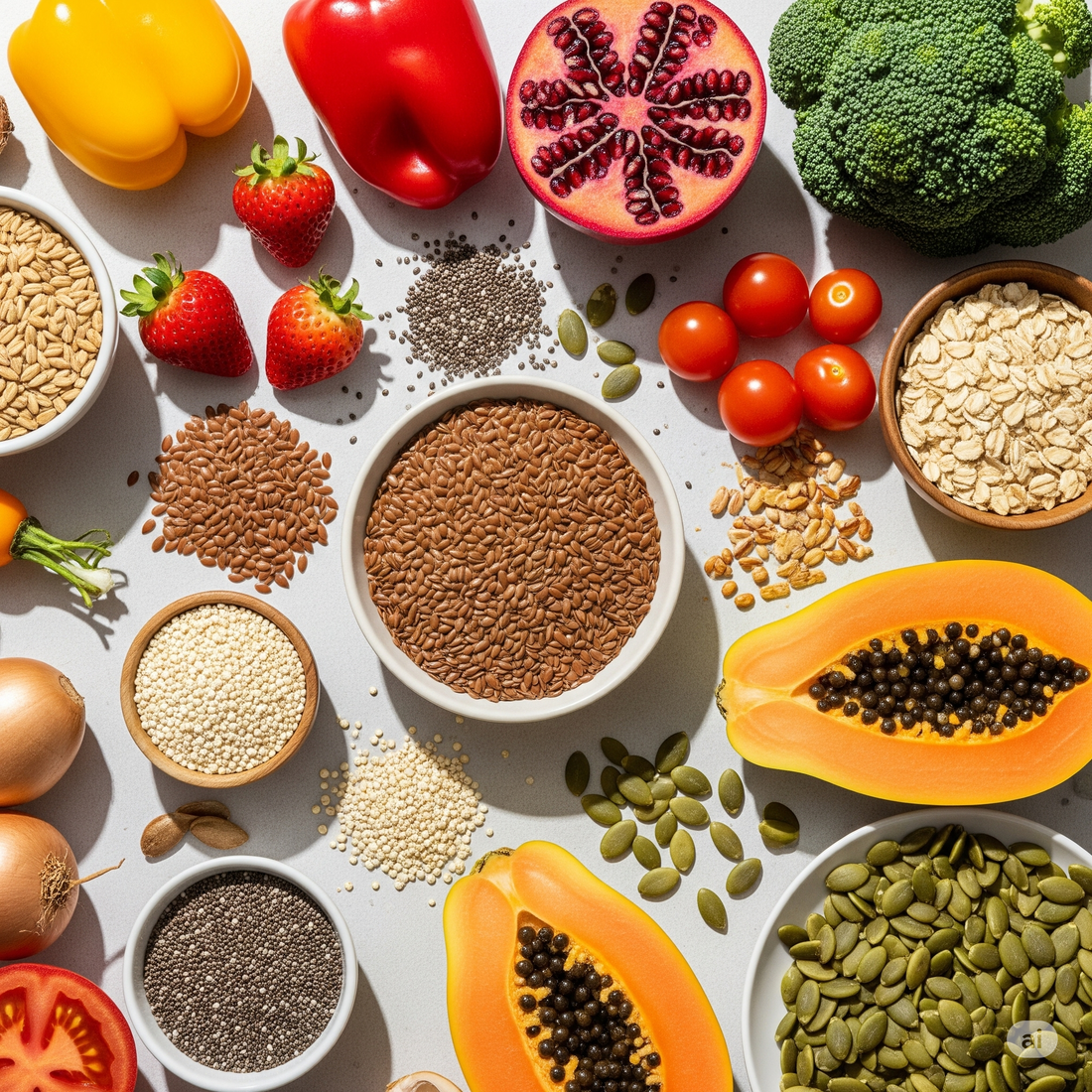In the bustling world of health and fitness, the spotlight almost always shines on macronutrients: carbohydrates, proteins, and fats. We meticulously track their grams, calculate their ratios, and often build entire diets around them. And while these "macros" are undeniably crucial for energy and building blocks, our intense focus on them frequently overshadows the equally, if not more, critical role of micronutrients—the essential vitamins, minerals, and other compounds our bodies need in smaller but vital amounts.
This oversight is particularly significant when we talk about metabolism, the intricate symphony of chemical reactions that keep us alive, power every function, and ultimately influence our ability to lose weight. It's not just about the quantity of calories consumed; it's about the sophisticated biochemical dance happening within your cells, and how micronutrients are the unsung heroes keeping that dance in perfect rhythm.
Why Micronutrients Matter More Than You Think for Weight Loss
Imagine your body as a high-performance engine. Just like a finely tuned car needs premium fuel and specific additives to run efficiently, your metabolism demands a consistent supply of high-quality "fuel" in the form of both macronutrients and micronutrients. And it's often the micronutrients that act as the essential spark plugs, lubricants, and catalysts that make the whole system hum.
At the very core of your metabolic engine are the mitochondria, often called the "powerhouses of the cell." Found in nearly every cell in your body, these tiny organelles are responsible for producing adenosine triphosphate (ATP), the primary energy currency your cells use to function. This intricate process of cellular respiration is highly dependent on a continuous and adequate supply of various micronutrients that are frequently overlooked in our macro-focused diets.
Think of it: for your mitochondria to efficiently transform the food you eat into usable energy, they require a precise set of raw materials and catalysts. This includes a wide array of B vitamins (like B1, B2, B3, B5, B6, B7, B9, B12), which act as crucial coenzymes, helping enzymes in your body break down carbohydrates, fats, and proteins for energy. Essential minerals such as magnesium, zinc, iron, and selenium also play indispensable roles in countless enzymatic reactions involved in energy production and overall metabolic function. Without sufficient quantities of these vital "mini-helpers," the entire energy production line can slow down or even grind to a halt.
The Micronutrient-Metabolism-Weight Loss Connection
When you consistently consume foods rich in these vital micronutrients, you're essentially providing your metabolic engine with the premium fuel and all the necessary components to run at its peak. A well-nourished metabolism operates more effectively and efficiently. This means your body is better equipped to:
-
Convert food into usable energy: Rather than storing it as excess fat.
-
Boost calorie burning: Your body can burn calories more efficiently, even at rest, contributing to a healthier metabolic rate. This isn't about a magic pill; it's about optimizing your body's inherent ability to manage energy.
Conversely, a diet dominated by highly processed, nutrient-poor foods often leads to micronutrient deficiencies. While these foods may provide ample macronutrients (calories from carbs, fats, and proteins), they typically lack the crucial vitamins and minerals needed for those macronutrients to be properly metabolized. When your body is starved of these essential micronutrients, the entire metabolic process can become sluggish and inefficient. It's like trying to run a high-performance car on low-grade, contaminated fuel – it won't perform optimally, and its efficiency will significantly decrease. This metabolic slowdown can make weight loss feel like an uphill battle, as your body struggles to efficiently convert food into energy, potentially leading to less overall calorie expenditure and increased fat storage.
Fuel Your Body Right: From Macros to Micronutrient-Rich for Sustainable Weight Loss
The message is clear: while macronutrients provide the bulk energy, it's the micronutrients that truly dictate how effectively that energy is utilized and how well your metabolism functions. For sustainable weight loss and overall vitality, it's not enough to just count calories or grams of protein. We need to shift our focus to the quality of our food and its micronutrient density.
Prioritizing whole, unprocessed foods like a vibrant array of fruits and vegetables, lean proteins, healthy fats, and whole grains ensures a steady supply of both the macronutrients and, crucially, the broad spectrum of micronutrients your body needs.
By choosing nutrient-rich foods, you're not just aiming for a number on the scale; you're actively supporting the intricate biological workings that govern your energy levels, satiety, and your body's innate ability to burn calories efficiently. It's time to shift some of our dietary focus from exclusively macro to inclusively micro, and experience the profound difference it makes in fueling your inner engine.
What are your favorite micronutrient-rich foods that make you feel energized?

